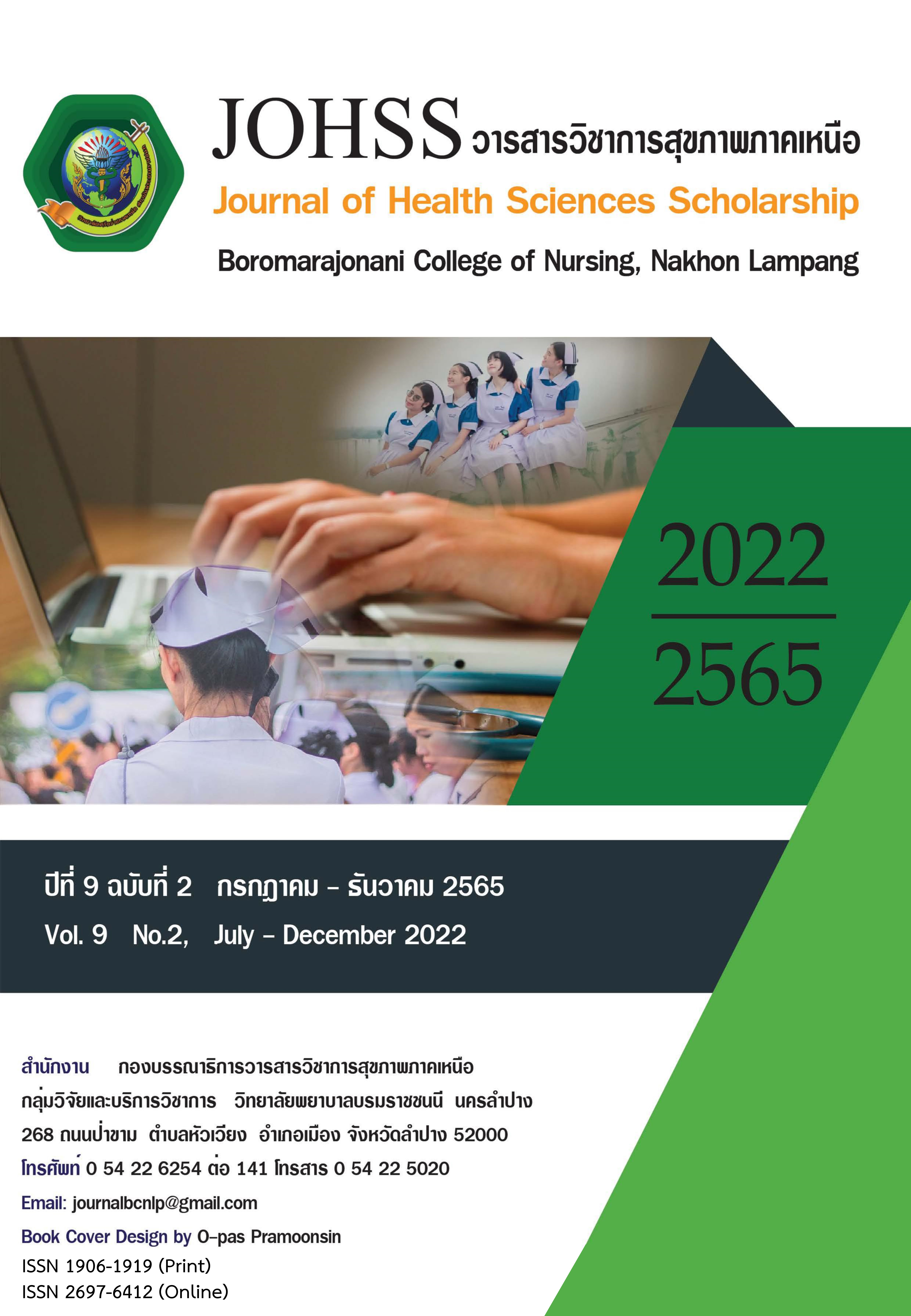ปัจจัยเสี่ยงในผู้ป่วยสะเก็ดเงินระดับปานกลางถึงรุนแรงที่ดื้อยารับประทาน
คำสำคัญ:
สะเก็ดเงิน, ปัจจัยเสี่ยง., การรักษาโดยยารับประทานบทคัดย่อ
การวิจัยแบบศึกษาไปข้างหน้าเชิงสังเกตในครั้งนี้มีวัตถุประสงค์เพื่อศึกษาหาปัจจัยเสี่ยงในผู้ป่วยสะเก็ดเงินระดับปานกลางขึ้นไปที่ดื้อต่อการรักษาด้วยยารับประทานที่เข้ารับการรักษาในโรงพยาบาลสวรรค์ประชารักษ์ จังหวัดนครสวรรค์ ประชากรคือ ผู้ป่วยโรคสะเก็ดเงินทั้งหมด 321 คนได้รับการวินิจฉัยระดับความรุนแรงปานกลางขึ้นจากค่าประเมินระดับความรุนแรงของโรคสะเก็ดเงิน (PASI score) โดยมีกลุ่มตัวอย่างที่เข้าเกณฑ์ตามคุณสมบัติ จำนวน 152 คน เครื่องมือที่ใช้ศึกษา ประกอบด้วย แบบสอบถามโดยแพทย์คลินิกโรคผิวหนัง ทำแบบสอบถามจากการซักประวัติข้อมูลส่วนบุคคล ชนิดและความรุนแรงของโรคและข้อมูลการรักษาเก็บรวบรวมข้อมูลจากเวชระเบียนผู้ป่วยโรคสะเก็ดเงินระดับปานกลางถึงรุนแรงทั้งหมดตั้งแต่เดือนมกราคม พ.ศ. 2561ถึง พฤศจิกายน พ.ศ. 2565 โดยแบ่งกลุ่มผู้ป่วยโรคสะเก็ดเงินที่ไม่ตอบสนองต่อการรักษา 87 คน และตอบสนองต่อการรักษาโดยยารับประทาน 65 คน วิเคราะห์ข้อมูลทั่วไปด้วยสถิติ STATA 16.0 วิเคราะห์เปรียบเทียบปัจจัยเสี่ยงที่ดื้อต่อการรักษาด้วยยารับประทาน โดยใช้สถิติ t-test ในข้อมูลต่อเนื่อง และใช้สถิติ exact test ในข้อมูลแจงนับ ควบคุมปัจจัยเสี่ยงด้วยสมการถดถอยโดยการใช้ Poisson regression แสดง risk ratio (RR) และ 95% Confidence Interval (CI) โดยระดับนัยสำคัญน้อยกว่า 0.05
ผลการรักษา ดัชนีมวลกาย (risk ratio 3.58, 95% CI 1.01–1.05, p < 0.001) และภาวะข้ออักเสบสะเก็ดเงิน (risk ratio 2.04, 95% CI 1.01-1.72, p 0.041) เป็นปัจจัยเสี่ยงในผู้ป่วยสะเก็ดเงินระดับปานกลางถึงรุนแรงที่ดื้อยารับประทานอย่างมีนัยสำคัญทางสถิติ ซึ่งดัชนีมวลกายและภาวะข้ออักเสบสะเก็ดเงินเป็นปัจจัยเสี่ยงในผู้ป่วยสะเก็ดเงินระดับปานกลางถึงรุนแรงที่ดื้อยารับประทานซึ่งอาจทำให้พิจารณาผู้ป่วยในกลุ่มนี้เปลี่ยนพฤติกรรมในการลดปัจจัยเสี่ยงหรือเปลี่ยนการรักษาด้วยยาในกลุ่มอื่นๆ นอกเหนือจากยารับประทาน
เอกสารอ้างอิง
Al-Janabi, A., & Yiu, Z. Z. N. (2022). Biologics in Psoriasis: Updated Perspectives on Long-Term Safety and Risk Management. Psoriasis (Auckl), 12, 1-14. doi:10.2147/ptt.S328575
Al-Mutairi, N., & Nour, T. (2014). The effect of weight reduction on treatment outcomes in obese patients with psoriasis on biologic therapy: a randomized controlled prospective trial. Expert Opin Biol Ther, 14(6), 749-756. doi:10.1517/14712598.2014.900541
Anghel, F., Nitusca, D., & Cristodor, P. (2021). Body Mass Index Influence for the Personalization of the Monoclonal Antibodies Therapy for Psoriasis. Life, 11(12), 1316. Retrieved from https://www.mdpi.com/2075-1729/11/12/1316
Armstrong, A. W. (2017). Psoriasis. JAMA Dermatology, 153(9), 956-956. doi:10.1001/jamadermatol.2017.2103
Aurangabadkar, S. J. (2013). Comorbidities in psoriasis. Indian J Dermatol Venereol Leprol, 79 Suppl 7, S10-17. doi:10.4103/0378-6323.115506
Borsky, P., Chmelarova, M., Fiala, Z., Hamakova, K., Palicka, V., Krejsek, J., . . . Borska, L. (2021). Aging in psoriasis vulgaris: female patients are epigenetically older than healthy controls. Immun Ageing, 18(1), 10. doi:10.1186/s12979-021-00220-5
Brownstone, N. D., Hong, J., Mosca, M., Hadeler, E., Liao, W., Bhutani, T., & Koo, J. (2021). Biologic Treatments of Psoriasis: An Update for the Clinician. Biologics, 15, 39-51. doi:10.2147/btt.S252578
Curmin, R., Guillo, S., De Rycke, Y., Bachelez, H., Beylot-Barry, M., Beneton, N., . . . Tubach, F. (2022). Switches between biologics in patients with moderate-to-severe psoriasis: results from the French cohort PSOBIOTEQ. J Eur Acad Dermatol Venereol, 36(11), 2101-2112. doi:10.1111/jdv.18409
Damiani, G., Bragazzi, N. L., Karimkhani Aksut, C., Wu, D., Alicandro, G., McGonagle, D., . . . Naghavi, M. (2021). The Global, Regional, and National Burden of Psoriasis: Results and Insights From the Global Burden of Disease 2019 Study. Front Med (Lausanne), 8, 743180. doi:10.3389/fmed.2021.743180
Edson-Heredia, E., Sterling, K. L., Alatorre, C. I., Cuyun Carter, G., Paczkowski, R., Zarotsky, V., & Maeda-Chubachi, T. (2014). Heterogeneity of response to biologic treatment: perspective for psoriasis. J Invest Dermatol, 134(1), 18-23. doi:10.1038/jid.2013.326
Gisondi, P., Fostini, A. C., Fossà, I., Girolomoni, G., & Targher, G. (2018). Psoriasis and the metabolic syndrome. Clin Dermatol, 36(1), 21-28. doi:10.1016/j.clindermatol.2017.09.005
Jindal, S., & Jindal, N. (2018). Psoriasis and Cardiovascular Diseases: A Literature Review to Determine the Causal Relationship. Cureus, 10(2), e2195. doi:10.7759/cureus.2195
Kamiya, K., Kishimoto, M., Sugai, J., Komine, M., & Ohtsuki, M. (2019). Risk Factors for the Development of Psoriasis. Int J Mol Sci, 20(18). doi:10.3390/ijms20184347
Kunz, M., Simon, J. C., & Saalbach, A. (2019). Psoriasis: Obesity and Fatty Acids. Front Immunol, 10, 1807. doi:10.3389/fimmu.2019.01807
Mekhail, C., Chouk, M., Prati, C., Wendling, D., & Verhoeven, F. (2020). Prognostic factors of good response to DMARDs in psoriatic arthritis: a narrative review. Expert Rev Clin Pharmacol, 13(5), 505-519. doi:10.1080/17512433.2020.1758556
Menter, A., Gordon, K. B., Leonardi, C. L., Gu, Y., & Goldblum, O. M. (2010). Efficacy and safety of adalimumab across subgroups of patients with moderate to severe psoriasis. J Am Acad Dermatol, 63(3), 448-456. doi:10.1016/j.jaad.2009.09.040
Naldi, L. (2016). Psoriasis and smoking: links and risks. Psoriasis (Auckl), 6, 65-71. doi:10.2147/ptt.S85189
Naldi, L., Addis, A., Chimenti, S., Giannetti, A., Picardo, M., Tomino, C., . . . Cuscito, R. (2008). Impact of body mass index and obesity on clinical response to systemic treatment for psoriasis. Evidence from the Psocare project. Dermatology, 217(4), 365-373. doi:10.1159/000156599
Nast, A., Smith, C., Spuls, P. I., Avila Valle, G., Bata-Csörgö, Z., Boonen, H., . . . Dressler, C. (2020). EuroGuiDerm Guideline on the systemic treatment of Psoriasis vulgaris - Part 1: treatment and monitoring recommendations. J Eur Acad Dermatol Venereol, 34(11), 2461-2498. doi:10.1111/jdv.16915
Nast, A., Smith, C., Spuls, P. I., Avila Valle, G., Bata-Csörgö, Z., Boonen, H., . . . Dressler, C. (2021). EuroGuiDerm Guideline on the systemic treatment of Psoriasis vulgaris - Part 2: specific clinical and comorbid situations. J Eur Acad Dermatol Venereol, 35(2), 281-317. doi:10.1111/jdv.16926
Ogdie, A., Shin, D. B., Love, T. J., & Gelfand, J. M. (2022). Body surface area affected by psoriasis and the risk for psoriatic arthritis: a prospective population-based cohort study. Rheumatology (Oxford), 61(5), 1877-1884. doi:10.1093/rheumatology/keab622
Pirro, F., Caldarola, G., Chiricozzi, A., Burlando, M., Mariani, M., Parodi, A., . . . De Simone, C. (2021). Impact of Body Mass Index on the Efficacy of Biological Therapies in Patients with Psoriasis: A Real-World Study. Clin Drug Investig, 41(10), 917-925. doi:10.1007/s40261-021-01080-z
Rousset, L., & Halioua, B. (2018). Stress and psoriasis. Int J Dermatol, 57(10), 1165-1172. doi:10.1111/ijd.14032
Sakai, R., Matsui, S., Fukushima, M., Yasuda, H., Miyauchi, H., & Miyachi, Y. (2005). Prognostic factor analysis for plaque psoriasis. Dermatology, 211(2), 103-106. doi:10.1159/000086437
Salah, L. A., Gillstedt, M., & Osmancevic, A. (2016). A Retrospective Study of Patients with Psoriasis Treated with Biologics: Relation to Body Mass Index and Gender. Acta Derm Venereol, 96(7), 974-975. doi:10.2340/00015555-2438
Wu, M. Y., Yu, C. L., Yang, S. J., & Chi, C. C. (2020). Change in body weight and body mass index in psoriasis patients receiving biologics: A systematic review and network meta-analysis. J Am Acad Dermatol, 82(1), 101-109. doi:10.1016/j.jaad.2019.07.103
ดาวน์โหลด
เผยแพร่แล้ว
ฉบับ
ประเภทบทความ
สัญญาอนุญาต
ลิขสิทธิ์ (c) 2022 วารสารวิชาการสุขภาพภาคเหนือ

อนุญาตภายใต้เงื่อนไข Creative Commons Attribution-NonCommercial-NoDerivatives 4.0 International License.
บทความ ข้อมูล เนื้อหา รูปภาพ ฯลฯ ที่ได้รับการตีพิมพ์ในวารสารวารสารวิชาการสุขภาพภาคเหนือ ถือเป็นลิขสิทธิ์ของวารสารวารสารวิชาการสุขภาพภาคเหนือ หากบุคคลหรือหน่วยงานใดต้องการนำทั้งหมดหรือส่วนหนึ่งส่วนใดไปเผยแพร่ต่อหรือเพื่อกระทำการใดๆ จะต้องได้รับอนุญาตเป็นลายลักอักษรจากวารสารวารสารวิชาการสุขภาพภาคเหนือก่อนเท่านั้น
เนื้อหาและข้อมูลในบทความที่ลงตีพิมพ์ในวารสารวิชาการสุขภาพภาคเหนือถือเป็นข้อคิดเห็นและความรับผิดชอบของผู้เขียนบทความโดยตรงซึ่งกองบรรณาธิการวารสาร ไม่จำเป็นต้องเห็นด้วย หรือร่วมรับผิดชอบใดๆ
อนึ่ง ข้อความและข้อคิดเห็นต่างๆ เป็นของผู้เขียนบทความนั้นๆ ไม่ถือเป็นความเห็นของวารสารฯ และวารสารฯ ไม่จำเป็นต้องเห็นด้วยกับข้อความและข้อคิดเห็นใดๆ ของผู้เขียน วารสารฯ ขอสงวนสิทธิ์ในการพิจารณาตีพิมพ์ตามความเหมาะสม รวมทั้งการตรวจทานแก้ไขหรือขัดเกลาภาษาให้ถูกต้องตามเกณฑ์ที่กำหนด



